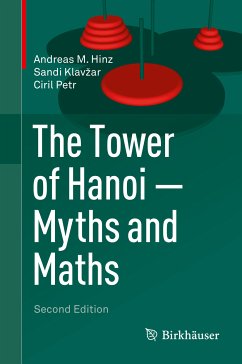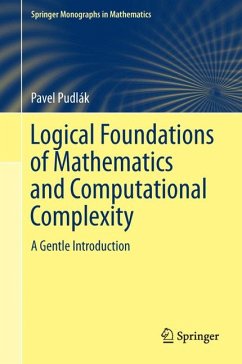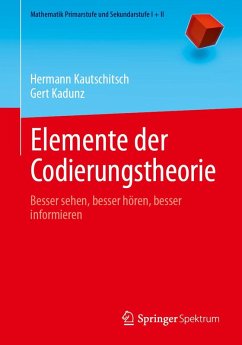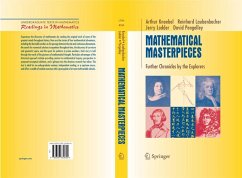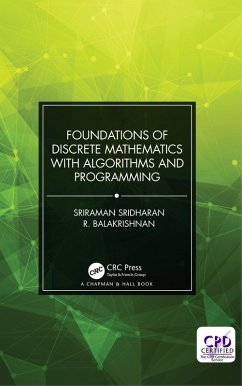
The Tower of Hanoi - Myths and Maths (eBook, PDF)
Versandkostenfrei!
Sofort per Download lieferbar
44,95 €
inkl. MwSt.
Weitere Ausgaben:

PAYBACK Punkte
22 °P sammeln!
This is the first comprehensive monograph on the mathematical theory of the solitaire game "The Tower of Hanoi" which was invented in the 19th century by the French number theorist Édouard Lucas. The book comprises a survey of the historical development from the game's predecessors up to recent research in mathematics and applications in computer science and psychology. Apart from long-standing myths it contains a thorough, largely self-contained presentation of the essential mathematical facts with complete proofs, including also unpublished material. The main objects of research today are t...
This is the first comprehensive monograph on the mathematical theory of the solitaire game "The Tower of Hanoi" which was invented in the 19th century by the French number theorist Édouard Lucas. The book comprises a survey of the historical development from the game's predecessors up to recent research in mathematics and applications in computer science and psychology. Apart from long-standing myths it contains a thorough, largely self-contained presentation of the essential mathematical facts with complete proofs, including also unpublished material. The main objects of research today are the so-called Hanoi graphs and the related Sierpinski graphs. Acknowledging the great popularity of the topic in computer science, algorithms and their correctness proofs form an essential part of the book. In view of the most important practical applications of the Tower of Hanoi and its variants, namely in physics, network theory, and cognitive (neuro)psychology, other related structures and puzzles like, e.g., the "Tower of London", are addressed. Numerous captivating integer sequences arise along the way, but also many open questions impose themselves. Central among these is the famed Frame-Stewart conjecture. Despite many attempts to decide it and large-scale numerical experiments supporting its truth, it remains unsettled after more than 70 years and thus demonstrates the timeliness of the topic. Enriched with elaborate illustrations, connections to other puzzles and challenges for the reader in the form of (solved) exercises as well as problems for further exploration, this book is enjoyable reading for students, educators, game enthusiasts and researchers alike.
Dieser Download kann aus rechtlichen Gründen nur mit Rechnungsadresse in A, B, BG, CY, CZ, D, DK, EW, E, FIN, F, GR, HR, H, IRL, I, LT, L, LR, M, NL, PL, P, R, S, SLO, SK ausgeliefert werden.




